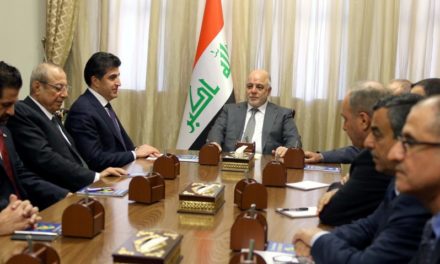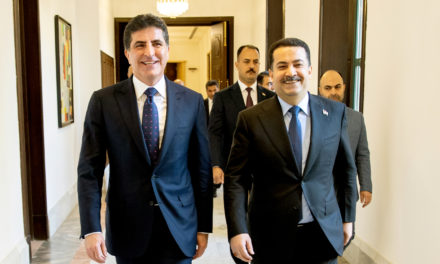The defeat of Da’ish, the return of security to the capital Baghdad and the peaceful transfer of power from former Prime Minister Haider Al-Abadi to the now-resigned Prime Minister Adil Abd Al-Mahdi were supposed to mark the start of the “New Iraq”. However, a little over a year later and Iraq finds itself in crisis. The government is incompetent and contested by waves of protests, the political class is divided and Iraq’s sovereignty has been violated by its two closest allies, Iran and the United States. This has derailed Iraq’s already tumultuous state-building project and left Iraq in an all too familiar position: on the brink of war.
This is not a conventional war, the likes of which Saddam Hussein constantly engaged in. Rather, the existence of the State itself is in peril and so, once again, everything is pushed aside in order to survive the next existential threat. While this is not the first time Iraq’s post-2003 political class faces such a crisis, it is now doing so without any real leadership. Even before his resignation, Abd Al-Mahdi was a hands-off Prime Minister. He left government institutions to the whims of opportunistic political parties. In his current position, he is less fit to run the country than when he took office in October 2018.
The October protests succeeded in forcing the resignation of Prime Minister Abd Al-Mahdi, but failed to provide any alternatives. In addition, protestors continuously rejected nominations from various political parties. In some instance, they found the candidates to be deeply mired in corruption and a repetition of past mistakes and in other cases, their refusal was based on the candidate’s previous participation in government. Without elections, it is difficult to have a new representative government that reflects genuine change. At the same time, the protestors undermined their own position by providing broad conditions for the ideal candidate.
The protestors could not have foreseen that the United States would eliminate Iranian IRGC General Qassim Soleimani and Deputy Leader of the Iraqi Popular Mobilization Forces (PMF) Abu Mahdi Al-Muhandis in an air strike near Baghdad International Airport on 3 January. However, history has shown that transitional periods in post 2003-Iraq have been followed by devastating events, given the sudden vulnerability of the Iraqi state. While protesting foreign interference in Iraq was one of the main rallying points, the protests ended up weakening the Iraqi Government at a time when its strength was the only way it would be able to counter foreign influence. Now, the political elite have reunited out of fear of what will happen next, which means the protests are most likely coming to an end. Not only will there be no tolerance for them from the political class, but Iraq’s powerful clerical class has also moved past them. 3 January was the first Friday Sermon since October that Grand Ayatollah Ali Al-Sistani did not mention the protests, marking a significant blow to their relevance.
What this means is that the next Prime Minister will most likely be from the establishment and will be more empowered from the political parties to ensure the survival of the current political order through this new wave of uncertainty. Of the remaining protestors, there will be little they can do to stop such a development from happening, and outcry from outside of Iraq will have little effect on the domestic situation as many citizens and protestors are cautiously afraid of what will happen next. At Tahrir Square, celebrations were seen after the death of Qassim Soleimani and Abu Mahdi Al-Muhandis, but there was also those that mourned Abu Mahdi as a war hero who helped with the fight against Da’ish. This was ironic as one of the reasons behind the start of the protests was the demotion of Staff Lieutenant General Abdul-Wahab Al-Sa’adi from the Iraqi Counter-Terrorism Service, that came after pressure from specific PMF leaders who wanted to sideline Al-Sa’adi.
Choosing the next Prime Minister is not the top priority at this moment, but it soon will be again. It will be of interest to see whom the political class conjures up and whether the clergy in Najaf will stick to their word and not be involved in the formation of the next government. There is a chance that the events of 3 January have changed the strategy of Grand Ayatollah Sistani. Regardless of who is chosen, their success will spell the advancement of Iraq and their failure will mean the weakening of Iraq, as has been the case with the previous Prime Ministers that have taken office.

Alaa Kadhem
Alaa Kadhem is a lawyer and leadership consultant with experience in the Middle East.










